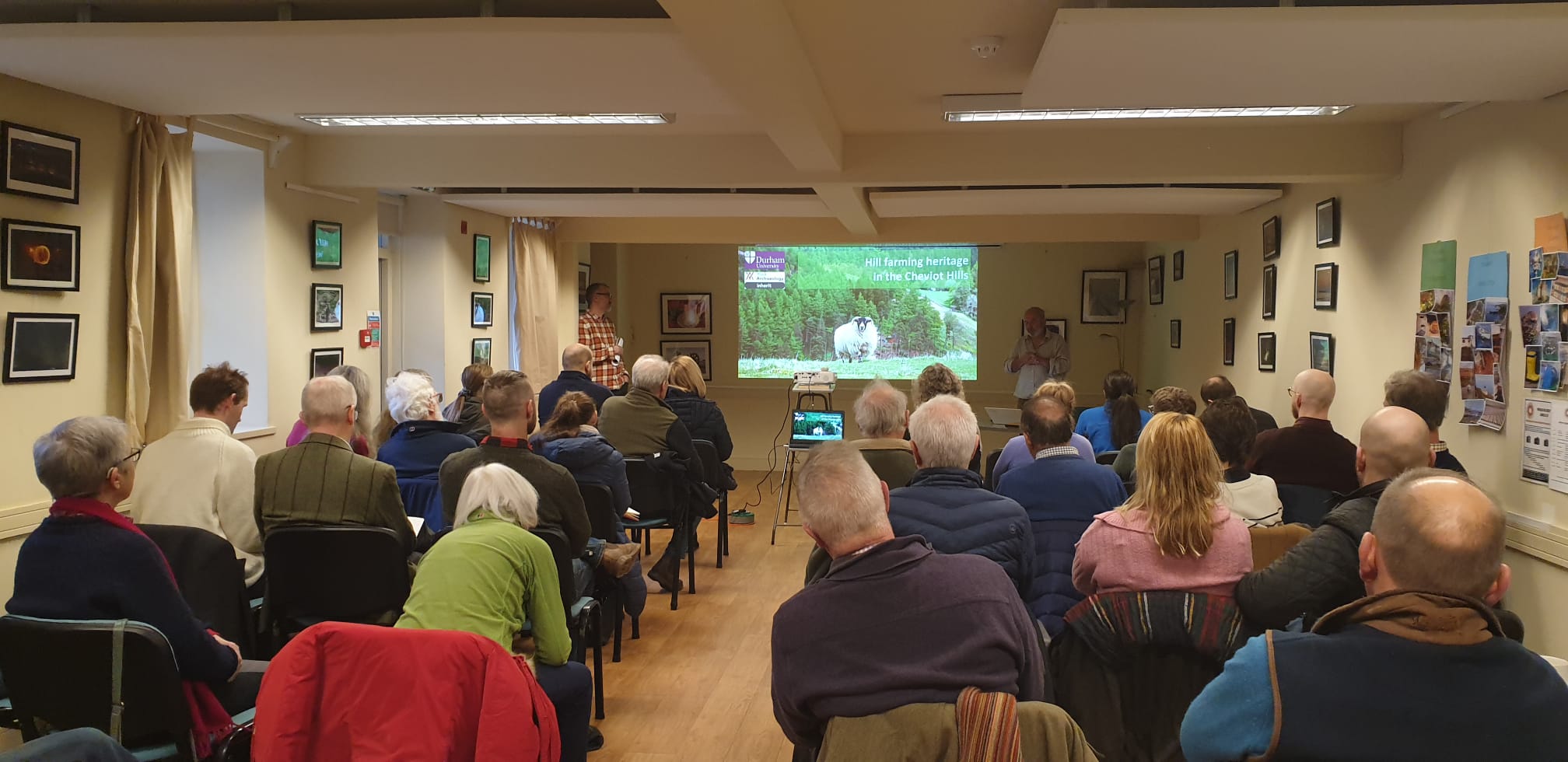
TRAININGS
STUDY AREA OF UK

Public presentation of project results
The UK project partners – Durham University and York Archaeology – delivered a training day on 16th January 2024 in Wooler, one of the main towns in the UK case study area (the Cheviot Hills). The training was designed to share the results of our research into hill farming heritage with local stakeholders and to explore how these results might be used. 35 people took part in the training, including local farmers, landowners and representatives of local environmental NGOs, charities and community organisations, local government, and regional public bodies.
The training had three main parts:
1) Presentation of the project results.
The project team presented findings relating to hill farming heritage. The presentation was followed by open discussion, in which training participants were able to explore the aspects of the research which are of most interest and relevance to them.
2) Participatory mapping.
We then shared the participatory maps which had been created for the UK case study and used them to discuss the future of hill farming heritage and its potential for sustainable land management. Local farmers and land managers were invited to help us to explain what the maps show, and this led to discussions about the main changes to farming and land use over time; the value of traditional farming practices today, and the challenges in sustaining or reviving traditional practices and realising their potential.
3) The future of hill farming heritage in the Cheviot Hills.
The end of the day session explored three questions in greater depth:
- What place might traditional ways of doing things have in future hill farming practice, and what might the benefits be?
- What contributions might traditional and historic farming practices make to land management in general and the development of the local community and economy?
- What would need to happen in order to realise these contributions and benefits?
After an introduction by the project team, a panel of local experts – an active farmer, a retired farmer/land manager, and a representative of the Northumberland National Park – gave their responses to these questions. Other participants were then invited to contribute and, from the discussion, there emerged: (i) a clear sense of which aspects of hill farming heritage are particularly valued by local stakeholders, and; (ii) several concrete proposals for how this heritage might be sustained and revived in order to achieve a range of social, economic and environmental goals.